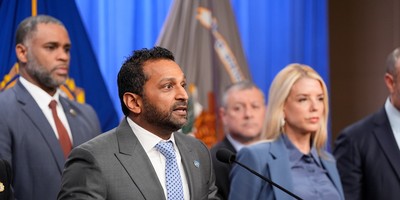WASHINGTON -- Over lunch with columnists a month ago, Senate Majority Leader Harry Reid precisely predicted the future course of the debt-limit debate. Democrats, he said, would not accept serious entitlement changes without accompanying tax increases. Republicans would not accept revenue increases. So an eventual agreement would be focused on domestic discretionary and defense cuts. Reid proceeded to tick off the categories of spending where the reductions would come -- a list closely resembling the eventual compromise.
It was a demonstration of Reid's underestimated skill as a legislative technician. It was also the description of a debt debate in Washington that remains unserious.
The debt-limit deal, which strained and nearly snapped American politics, was the easy part. The compromise involved no reforms of Medicare or Social Security, and no tax increases. Once again, the president and Congress targeted discretionary spending -- about a third of the federal budget. Given the severity of previous discretionary spending cuts, this strategy will not work the next time around.
The bargain addresses a liquidity problem; it does not resolve the debt crisis. Yet this exertion has left Democrats and Republicans winded and prostrate at the first mile of a marathon.
The application of stress has revealed a number of weaknesses in the political system.
First, Barack Obama is a weakened president. Republicans were able to take a routine procedure -- the debt-limit increase -- and turn it into a powerful policy lever. This maneuver certainly will be turned against GOP presidents in the future. But it worked well this time. While congressional Republicans suffered tactical reverses along the way, they won a strategic triumph. Debt, deficits and spending are the dominant issues in American politics -- which makes Republicans the dominant political force.
Recommended
Which also places Obama in serious political trouble. Last week's economic growth numbers were dismal beyond the most bearish expectations -- 0.4 percent GDP growth in the first quarter and 1.3 percent in the second quarter. This previews equally depressing employment numbers. And it complicates the deficit challenge. President Obama's budget assumed a 3.6 percent growth rate for 2012. Lawrence Lindsey, former director of National Economic Council, argues that a slowed economy may increase the 10-year debt projection by as much as $5 trillion -- dwarfing the savings of the debt deal.
Obama desperately needs to relaunch his economic message. But since the 2010 elections, he has not controlled the terms of the economic debate. During the debt-limit controversy, he often appeared petty and vindictive. He was largely cut out of final negotiations by his own party. Obama's policy agenda seems exhausted. If he cannot change this dynamic, his re-election is unlikely.
Second, House Speaker John Boehner has been weakened by fractures in the Republican coalition. About 10 percent of the House GOP caucus decided to humiliate their own speaker -- and undermine Republican negotiations in the Senate -- in order to force a symbolic, meaningless vote on a balanced-budget amendment. This is not an indication that Boehner has poor leadership skills; to the contrary, his political instincts during this debate were generally impressive. But it is a demonstration that a significant minority of House conservatives has no interest in actually governing. The dissenters made no serious strategic case for their actions. They apparently view public office as a chance to periodically display their purity. It is the political philosophy of the peacock.
Third, the groundwork has not been laid for a serious debt debate, even after the presidential election. An honest Medicare discussion was completely deferred -- which I suspect most Republicans, even tea party Republicans, found a relief. They seemed pleased to move beyond the Medicare controversy provoked by Rep. Paul Ryan's budget -- back to the more comfortable ground of cutting discretionary spending.
The problem is that an honest debate on controlling Medicare costs -- a prerequisite for meaningful debt reduction -- is uncomfortable for both parties. Democrats support price controls in an ever more repressive system that tends toward rationing. Republicans want to limit costs by increasing out-of-pocket costs for the middle class. Neither side has a political interest in preparing Americans for unavoidable pain. This challenge is at least an order of magnitude larger than anything Congress currently contemplates.
So a debt deal is struck. But, after this spectacle, why would a credit rating agency, a foreign investor, or an American voter have confidence in the ability of the American political system to confront the coming entitlement emergency?

























Join the conversation as a VIP Member